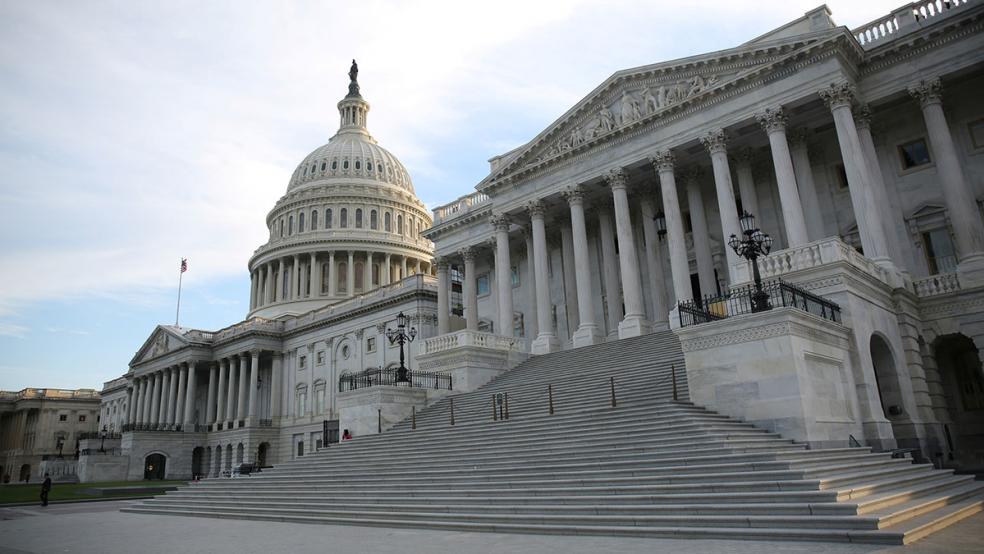A former senator says he’s alarmed by the turmoil in Washington that is preventing anything of substance from getting done.
“I think you’re seeing mass confusion and a lack of leadership, whether it’s in the Senate, the White House or the House,” Tom Coburn (R-OK) said during an appearance Wednesday on MSNBC’s Morning Joe. “What Americans want is problems solved.”
Related: 9 Top Takeaways From Trump’s $4 Trillion Federal Budget
Little more than four months after President Trump and the Republicans took control of the White House and Congress, Coburn’s lament about mass confusion in Washington couldn’t be better timed.
Republicans promised swift action this year to repeal and replace the Affordable Care Act, slash tax rates, launch a trillion-dollar infrastructure program and build a wall along the border with Mexico. But Congress departed last week for a lengthy Memorial Day recess with the GOP agenda in tatters.
By the time lawmakers return to Washington next week, there will be only seven weeks left before the beginning of an extended August recess, when all legislative action grinds to a halt. That will leave Trump and the GOP leadership with relatively little time to get their legislative train back on track and avoid the possibility of a first-ever default on U.S. borrowing.
Here’s a quick summary of four major legislative challenges Republicans are facing:
1. Health care. The House passed the American Health Care Act to replace Obamacare, but it’s been deemed “dead on arrival” in the Senate, where GOP leaders are frantically trying to devise an alternative plan. Senate Majority Leader Mitch McConnell (R-KY) conceded to reporters recently that he doesn’t see a path yet to mustering the 50 votes needed to pass a plan in the Senate.
Related: Trump’s Budget Cuts to the Social Safety Net Are Larger Than Reagan’s
2. The budget. The Trump administration proposed a fiscal 2018 budget calling for new spending for defense, veterans and homeland security while outlining $4.3 trillion in long-term cuts in health care and social programs. It won’t be easy for Republicans to reach a consensus on a new budget resolution that placates Trump while also appealing to Democrats, whose votes will be needed to convert the budget resolution into specific spending bills for both defense and domestic programs.
3. Taxes. There’s another reason why it is essential that the Republicans reach agreement on new budget resolution for the coming year: Without one, they won’t be able to overhaul the federal tax code with just 51 votes in the Senate, using arcane budget reconciliation rules that require a simple majority rather than a 60-vote super majority.
Yet even with the advantage afforded them by reconciliation to prevent a Democratic filibuster, House and Senate GOP leaders can’t agree among themselves on an approach to rewriting the tax code and slashing rates that would be acceptable to both chambers and pass muster with an array of powerful special interest groups. The Wall Street Journal reported this week that the GOP’s boldest ideas for changing the tax code for the first time since 1986 “are either dead or on political life support.”
4. The debt ceiling. GOP congressional leaders thought they had until this fall to increase the Treasury’s borrowing authority to pay creditors and keep the government operating when tax revenues fall short. But Treasury Secretary Steven Mnuchin told Congress last week that he wanted the debt ceiling to be raised before the August recess, because of concerns about ebbing cash flows at the Treasury.
Mnuchin also said that he wants Congress to pass a “clean” debt ceiling bill, without any amendments calling for spending cuts or other policy changes, to keep the legislation from turning into a political football. But raising the debt ceiling is one of the most difficult tasks for the party in power, and amendments are often needed to placate conservatives reluctant to support more borrowing by the government.
With the national debt fast approaching an historic $20 trillion and the annual budget deficit now more than $534 billion, Coburn sees this as a good time to renew his call for a constitutional requirement that Congress balance its books every year. While Trump boasts that his budget would balance the budget within the coming decade, independent analysts say that, in fact, his tax cuts and spending proposals would add trillions of dollars to the national debt in the coming years.
Coburn, a retired obstetrician who made a name for himself in the House and Senate as a political pork buster and raging critic of government waste, warns that millennials will be hardest hit by the consequences of out of control government spending and an ever rising national debt.
In a recent interview with PJ Media, Coburn said that younger Americans must assume responsibility for “taking back” the government for themselves, by getting behind a drive for a balanced budget amendment.
“Ask yourself this question: We’re going to run maybe a $400-$500 billion deficit this year, maybe $500-600 billion next year,” Coburn said. “You hear anybody talking about fixing that? You see anything in the news? Where is the effort to fix what they’re doing?”





